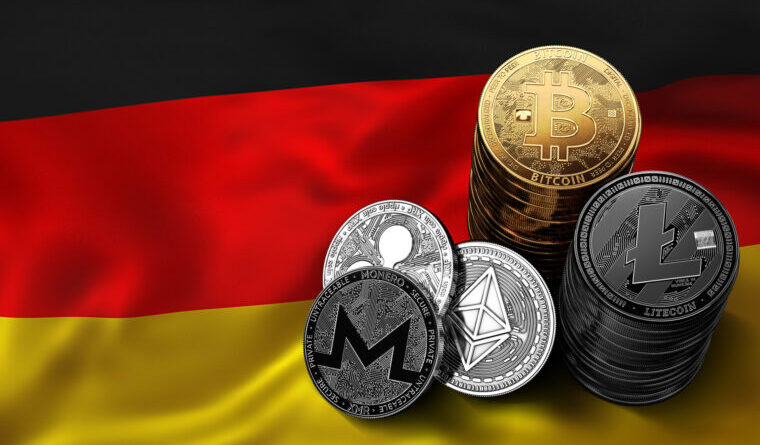Understanding a nation’s stance on innovation and technology is pivotal in the world of digital currencies. A nation’s embrace of cryptocurrencies and overall sentiment towards blockchain technology provides valuable insights into its forward-thinking approach.
Crypto-friendly nations are characterised by a supportive regulatory framework and robust infrastructure, fostering cryptocurrencies’ seamless utilisation and acceptance.
They recognise cryptocurrencies as legitimate currencies, implement favourable regulations, ensure accessibility, and actively promote innovation and education within the crypto industry.
It’s important to note that crypto regulations can change over time, resulting in fluctuations in a nation’s crypto-friendliness.
Discovering Cryptocurrency-Friendly Destinations: Top 5 Nations in 2024

Crypto Haven in Europe: Germany is one of Europe’s most crypto-friendly destinations for investors. It offers advantageous tax treatment for crypto assets. Maintaining crypto investments for over a year exempts them from being classified as capital assets, resulting in zero taxes on long-term returns. Short-term incomes under €600 are also tax-free.
Additionally, crypto holdings exceeding ten years remain tax-exempt, making Germany an appealing choice for long-term crypto investors.
Europe’s Crypto Oasis Known as “Blockchain Island: Malta has emerged as a hotspot for cryptocurrency investments. Its welcoming regulatory environment has enabled significant exchanges like Binance to operate seamlessly in Malta and across the European Union.
Investors and traders can benefit from tax-free long-term capital gains, while short-term profits are subject to a tax rate ranging from 0% to 35%, depending on income. Malta’s government actively endorses cryptocurrency usage for transactions involving goods and services.

Tax-Free Crypto Paradise: Portugal, famous for its picturesque beaches, presents a unique opportunity for tax-free crypto investments. Traders, buyers, and sellers of cryptocurrencies enjoy tax exemptions.
This includes freedom from VAT and income tax, making it a compelling option for individuals. However, businesses may face a flat tax rate of 28% on short-term profits from crypto transactions.
Pioneering Crypto Adoption: Japan, an early adopter of cryptocurrencies, embraced Bitcoin in 2017 and has since licensed numerous crypto exchanges, fostering a culture of digital currency acceptance.
Tax exemptions apply for crypto profits totalling less than 200k JPY in a financial year, and for earnings below 1.95M JPY, the income tax rate is just 5%.
The Japanese government actively supports blockchain technology development, forging partnerships with private entities and institutions to enhance transparency and efficiency in administrative processes. Learn about Bitcoin in Japan.

Crypto Innovation Hub: Switzerland, home to prominent crypto projects like Ethereum and Bitcoin Suisse, boasts the world’s leading blockchain ecosystem, Crypto Valley. Capital gains tax is nonexistent, but mining activities are subject to taxation.
Notably, the value of crypto assets, whether held by private investors or businesses, is taxable. The city of Lugano in Switzerland sets a progressive example by accepting cryptocurrency payments for taxes, emphasising the country’s commitment to digital currencies.
Identifying Crypto-Welcoming Nations: Key Indicators
Legalisation of Cryptocurrency: To be deemed crypto-friendly, a nation must first accept and legalise cryptocurrencies. Countries like China, Bangladesh, Indonesia, and Egypt have implemented bans on digital coins.
Supportive Regulations: Crypto-friendly countries cultivate a regulatory environment with favourable tax policies that encourage the growth of crypto companies, supporting and nurturing cryptocurrency ventures.
Minimal Taxes: Crypto-friendly nations have minimal or zero capital gains taxes on crypto trading and investments. In contrast, Bitcoin-legal countries typically impose taxes on digital assets.
To conclude, governments’ global perspective on digital coins varies widely, leading to diverse tax policies and attitudes. For those engaged in the crypto industry, choosing to establish a base in a nation where crypto is welcomed can be a strategic move to thrive in this dynamic landscape.
